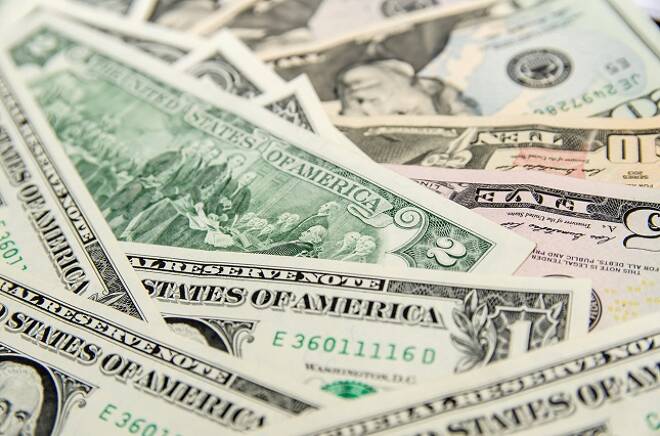Advertisement
Advertisement
Dovish Fed Policy, Weak Economic Data Weigh on U.S. Dollar
By:
The U.S. Dollar continued to lose ground against a basket of currencies last week, but the damage wasn’t as bad as the headlines throughout the week
The U.S. Dollar continued to lose ground against a basket of currencies last week, but the damage wasn’t as bad as the headlines throughout the week suggested. This is because most of the weakness was related to a dovish U.S. Federal Reserve and this assessment had been built into the market for weeks.
September U.S. Dollar Index futures settled the week at 93.114, down 0.565 or -0.60%.
The key event last week affecting the U.S. Dollar was the U.S. Federal Reserve’s interest rate decision and monetary policy statement.
Last Wednesday, the Fed unanimously declined to raise interest rates. It also laid the groundwork to begin trimming its massive $4.5 trillion bond portfolio.
“The committee expects to begin implementing its balance sheet normalization program relatively soon,” said the Fed statement. This implied the central bank is ready to begin winding down its huge stimulus program in September rather than December as previously expected.
In assessing the economy, the Federal Open Market Committee held to its assessment that “activity has been rising moderately so far this year.” On inflation, the statement removed the word “somewhat” from June’s verbiage and said simply that inflation was running “below 2 percent”. This was only a subtle tweak, but nonetheless probably means Fed officials are a little more pessimistic about reaching their mandated objectives.
In other news, the dollar weakened on Friday in reaction to underwhelming U.S. economic data. U.S. Gross Domestic Product growth picked up 2.6 percent in the second quarter, in line with expectations. However, first quarter GDP was revised downward to 1.2 percent.
The Employment Cost Index came in at 0.5%, below the 0.6% estimate and 0.8% previous read. A separate report showed the personal consumption expenditures (PCE) price index, the Fed’s preferred inflation gauge, increased at a rate of 0.9 percent.
Revised University of Michigan Consumer Sentiment was 93.4, slightly above the 93.2 estimate and 93.1 previous read. This indicates that Americans appear the most optimistic about the current economic situation in the U.S. than they have in 12 years.
AUD/USD and NZD/USD
The Australian and New Zealand Dollars soared against the U.S. Dollar, despite weaker-than-expected Australian Consumer Inflation and an attempt by a Reserve Bank of Australia official to talk down the currency.
The AUD/USD settled at .7985, up 0.0072 or +0.91% and the NZD/USD finished at .7511, up 0.0057 or 0.77%.
Consumer prices in Australia expanded 0.2% quarterly compared with estimates of 0.4% and 1.9% annually compared with a 2.2% estimate. Additionally, the RBA’s preferred inflation measure, core inflation, grew 0.5% in the quarter and 1.8% in the last year.
Reserve Bank of Australia governor Philip Lowe firmly indicated he is in no hurry to join the increasing number of central banks around the world that are hiking official rates and withdrawing monetary stimulus.
Lowe said that what is happening offshore has “no automatic implications for monetary policy in Australia.”
He further added, “These central banks lowered their interest rates to zero and also expanded their balance sheets greatly. We did not go down this route.”
“Just as we did not move in lockstep with other central banks when the monetary stimulus was being delivered, we don’t need to move in lockstep as some of this stimulus is removed. ‘
The Aussie and Kiwi initially retreated on Lowe’s statement, but recovered after the Fed released its dovish monetary policy statement.
The buying in the AUD/USD was strong enough to drive the Forex pair into a two-year high, over the psychological .8000 level, but prices retreated late in the week after Goldman Sachs issued a sell signal, saying the currency was overvalued given the current economic conditions.
About the Author
James Hyerczykauthor
James Hyerczyk is a U.S. based seasoned technical analyst and educator with over 40 years of experience in market analysis and trading, specializing in chart patterns and price movement. He is the author of two books on technical analysis and has a background in both futures and stock markets.
Advertisement
